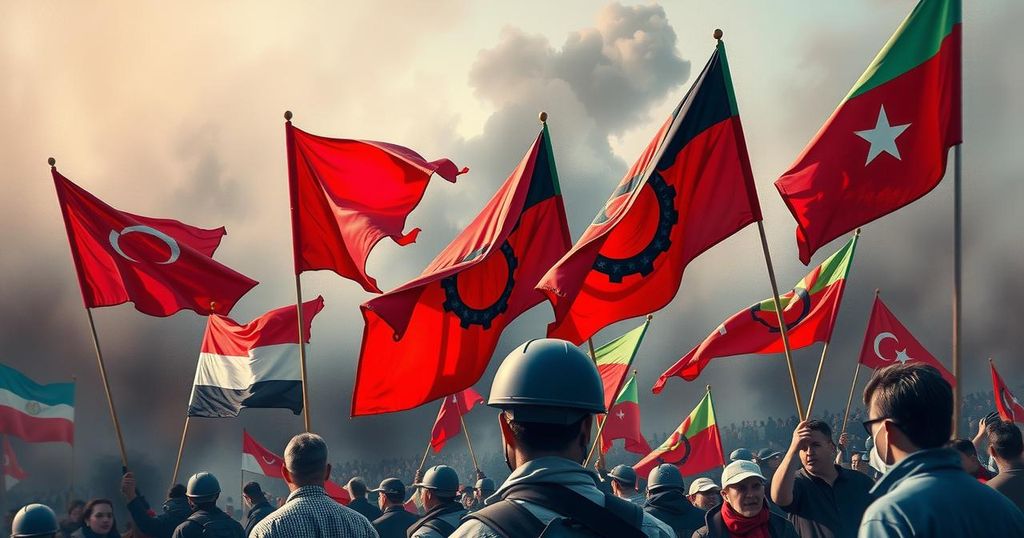Mozambique police shot and killed two protesters during a demonstration in Maputo, called by opposition leader Venancio Mondlane, who claims the recent elections were rigged in favor of President Daniel Chapo. Recent protests have led to numerous fatalities and injuries, drawing attention to escalating violence against dissent in the country. Civil society groups have confirmed the use of live ammunition by the police in dispersing protests.
On Tuesday, Mozambique police opened fire on protesters in the capital city, Maputo, resulting in two fatalities, as reported by witnesses and AFP journalists. This event was initiated by a day of protest organized by opposition leader Venancio Mondlane, following numerous violent demonstrations linked to the alleged rigging of October’s presidential elections in favor of President Daniel Chapo. Graphic images released by AFP depicted two bodies covered by blankets, lying in pools of blood in the Matola area, signaling the tragic outcome of the police’s actions.
Witness accounts indicate that police attempted to disperse a gathering, leading to the shooting, with one victim reportedly shot in the head. Two local civil society organizations corroborated the reports of police gunfire during the protest. Mondlane, who secured second place in the presidential election, has claimed that he was unfairly denied victory, with various international observers noting significant election irregularities. In the aftermath of the disputed elections, over 360 individuals have reportedly been killed in protests, according to the local civil society group, Plataforma Decide.
In recent protests, including one earlier this month, police employed live ammunition, resulting in at least 14 injuries amongst opposition demonstrators. Plataforma Decide confirmed one of the deaths from the latest incident through a social media post showing one of the deceased. A witness detailed a harrowing account where police pursued protestors into neighborhoods and fired upon them.
Mozambique’s Centre for Democracy and Development stated on social media that the police’s Rapid Intervention Unit discharged live ammunition at its team while attempting to cover the protests. CDD’s human rights officer, Andre Mulungo, remarked on the peaceful nature of the demonstration prior to police intervention. The frustrations of citizens were palpable, as one protestor expressed disdain over unemployment and the government’s violent approach, questioning the authorities’ motives and lamenting the loss of life.
President Chapo, representing the Frelimo party, has led Mozambique since mid-January, with his party having ruled since the country’s independence from Portugal in 1975. He was reportedly credited with receiving 65 percent of the vote, while Mondlane claimed to have won 53 percent despite official results showing him at 24 percent, suggesting a significant challenge to Frelimo’s longstanding dominance in the political arena.
The events in Mozambique highlight the rising tensions and violent repercussions of political dissent, particularly surrounding the controversial presidential elections. The police’s use of lethal force against demonstrators raises serious concerns about human rights and civil liberties within the country. As opposition leader Venancio Mondlane continues to challenge the legitimacy of the election results, the plight of the citizens remains grim, fueling unrest and calls for justice and accountability from the authorities.
Original Source: www.france24.com






